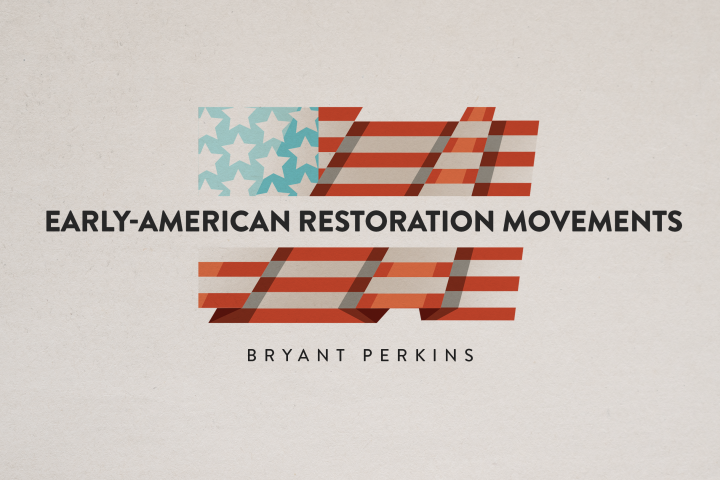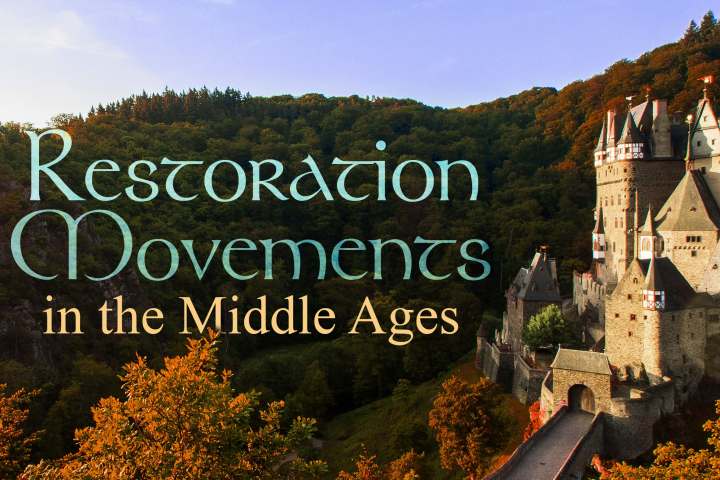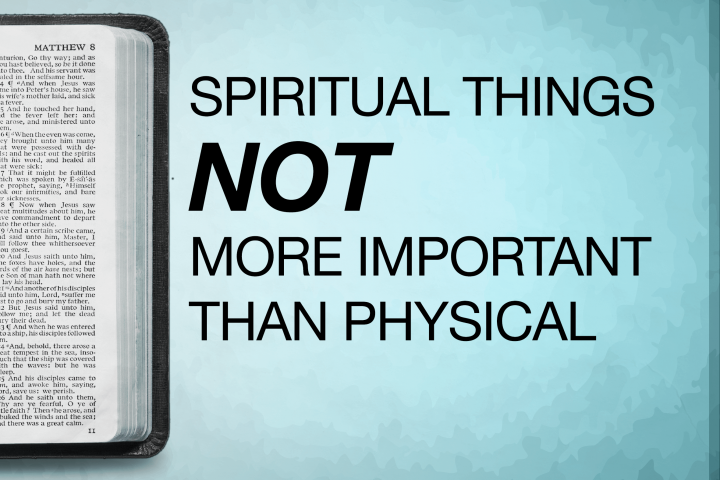Stone and Campbell Unite
The two Restoration Movements led respectively by Barton W. Stone and Thomas and Alexander Campbell came into increasing contact with each other in Virginia, Ohio, and Kentucky throughout the 1820s. Their interactions brought the realization that they had a great deal in common, with their commitment to Scripture as their only guide and common call to unify Christians around the primitive NT church. Despite some differences that existed, members of both movements began to question why they did not unite…
Stone and Campbell Intersect
A Restoration Movement, led primarily by Barton W. Stone, emerged in Kentucky; another Restoration movement, led by Thomas and Alexander Campbell, emerged in southwest Pennsylvania. As these two groups spread, they began to intersect in Virginia, Ohio, and Kentucky. By 1823, Stone’s Christian numbered between 15 and 20 thousand, and few had heard of Alexander Campbell. But that year, he traveled to Kentucky to debate the Presbyterian W. L. McCalla on baptism, taking along several copies of his new journal,…
Alexander Campbell and the Baptists
While Thomas Campbell was separated from his family, establishing himself—and a burgeoning reform movement—in America, they had an eventful 30 months themselves. Their first attempt at a voyage was shipwrecked off the coast of Scotland. That night, while awaiting rescue, Thomas’s 20 year old son Alexander Campbell (1788-1866) made a decision he had often contemplated: he would devote his live to ministry. It was too late in the year to attempt to cross the Atlantic again, so the Campbells settled…
Thomas Campbell’s Declaration and Address
While the various men we have written about in the past few weeks – O’Kelly, Smith, Jones, and Stone – were aspiring to be simply New Testament Christians in the United States, the principal figures of the fourth and final movement to examine were still in the British Isles. Thomas Campbell (1763-1854) was a Presbyterian minister in Ireland who became increasingly dissatisfied with the divisiveness of his denomination: he was not just a Presbyterian, but an Old Light, Anti-Burgher, Seceder…
The Christians in the West
A tradition of restorationist thinking, despair over denominationalism, and a commitment to religious liberty combined in the young United States to produce 4 movements, emerging almost simultaneously and independently, that looked to Scripture and the faith and practice of the New Testament church as their guide. We noted 2 of these last week: the O’Kelly Christians in the South and the Smith-Jones movement in New England. The most numerous of these grew largely from former Presbyterians and Baptists in Kentucky…
Early-American Restoration Movements
For the last few weeks, we have had a series of articles covering the roots of the Restoration Movement. We looked at its spiritual predecessors in the Middle Ages; we saw more direct influences in the Reformed tradition, especially as delivered through the Puritans, as well as the Anabaptists. All of these factors were present in Europe, of course. But certain features peculiar to the American experience, particularly in the aftermath of the Revolution, made it ripe for the Restoration…
Renaissance, Reformation, and Restoration
The Renaissance When we divide world history into discrete periods – realizing, of course, that nothing, in reality, is ever as neat and tidy as it appears in a textbook – the ebb of learning that characterized much of the Middle Ages is followed by the Renaissance (c. 1300-1517). The dependence on institutional authority that defined much of medieval life for common people – not least in the church – was rejected for an individualism manifested primarily as faith in…
“Restoration Movements” in the Middle Ages
The very concept of “Restoration” indicates that something needs to be restored. What do we mean by that? Acts 2 portrays the Jerusalem church in the immediate aftermath of Pentecost as a model: they were devoted to the teachings of the apostles, they engaged in regular prayer and fellowship, and they grew exponentially. But the rest of Acts as well as the NT more generally make clear that the early church had problems too: there was division in Corinth, Judaizing…
Why Study History?
For I do not want you to be unaware, brothers, that our fathers were all under the cloud, and all passed through the sea, and all were baptized into Moses in the cloud and in the sea, and all ate the same spiritual food, and all drank the same spiritual drink. For they drank from the spiritual Rock that followed them, and the Rock was Christ. Nevertheless, with most of them God was not pleased, for they were overthrown in the wilderness. Now these things took place as examples…
Spiritual Things NOT More Important Than Physical
I referenced this article by Wes McAdams, preacher for the McDermott Road Church of Chris tin Plano, on Wednesday night and thought I would go ahead and share it with you; it is certainly food for thought. If you have never read his blog “Radically Christian,” I highly recommend it. BP A paradigm shift happens when you change or correct an assumption on which other conclusions are based. Most Christians, for instance, assume spiritual things are more important than physical…
The Danger of Anger
We all know the type of pithy little sayings that you find on church signs sometimes. Perhaps you have seen this one: “Anger is just one letter short of being danger.” It’s true; anger can be dangerous. And I imagine most of us experience times when we lose our tempers, because anger is one of the most difficult emotions to control. It’s like the comic book character, the Incredible Hulk. Normally he is a mild-mannered scientist, Dr. Bruce Banner –…
James Harding on (Re)Baptism
We celebrate Independence Day this week, a time to reflect on the beliefs and actions of our Founding Fathers. In a similar way, I think it is profitable to occasionally consider the views of our fathers in the faith. James Harding was a preacher, writer, and educator in the late 19th and early 20th centuries; Harding University is named for him. This is from the July, 1900 edition of his publication “The Way” in response to a letter from a…










